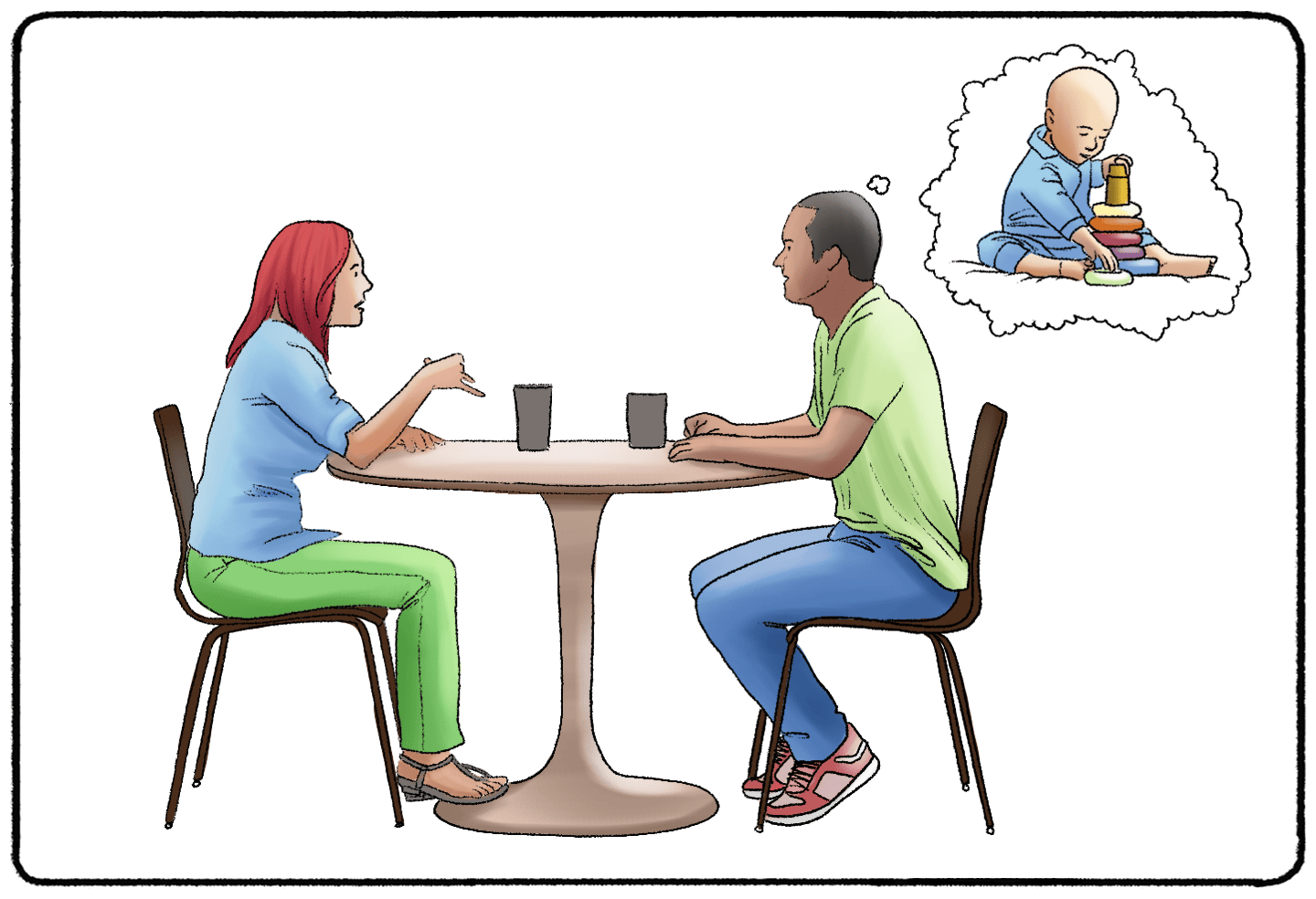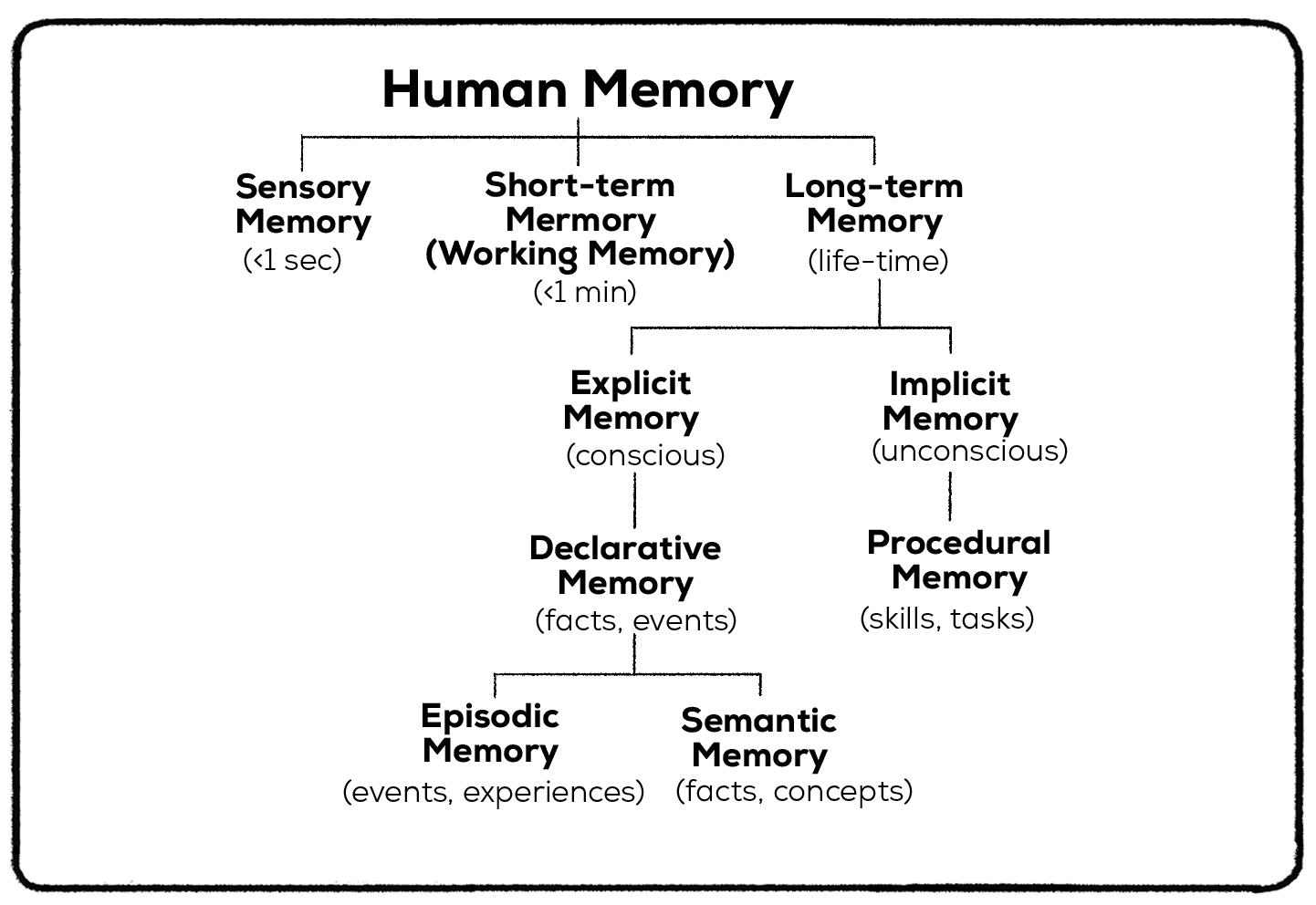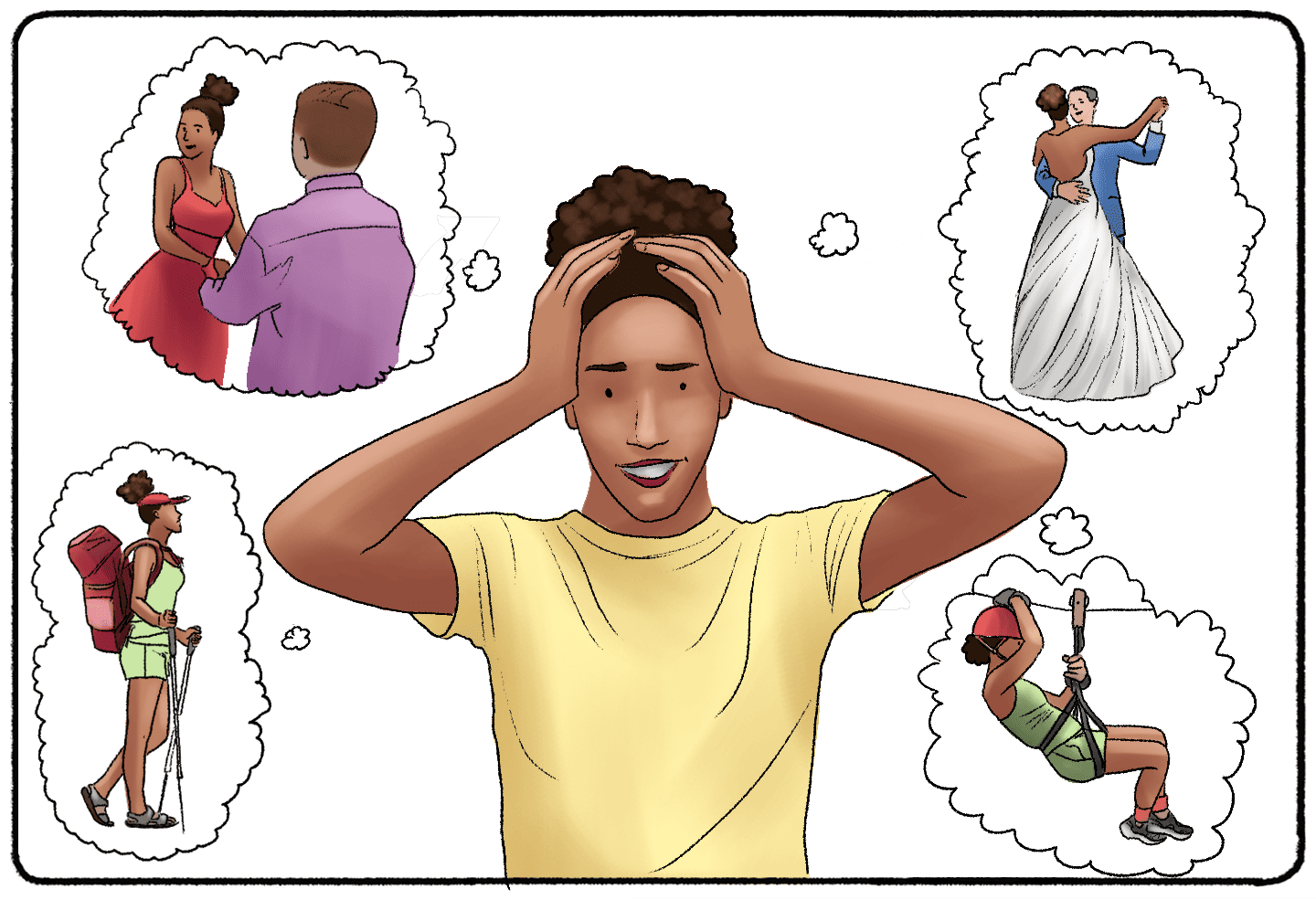Looking for the definition and some examples of autobiographical memory? No worries, here you will find all the information psychologists have found so far.
If you ever want to fall in love with someone, just check out The 36 Questions That Lead to Love. These questions dive deep into each partner’s values, accomplishments, and shortcomings. And I mean deep.
Question #11 of The 36 Questions That Lead to Love isn’t exactly a question. It states: “Take four minutes and tell your partner your life story in as much detail as possible.”
It’s common to need a minute or two to prepare this story. Very few people are asked to tell their life stories. Where do you begin? What is most important to include?
To tell the story of your life, you’ll need to pull from a specific collection of memories: autobiographical memories. This page will explain what autobiographical memories are, what they consist of, and the different levels of autobiographical memory. These memories can have a big impact on the decisions you make and how you view yourself, so it’s important to check in with them here and there.

What Are Autobiographical Memories?
Autobiographical memories are a form of memory that we store in first-person because they happened to us. We are much more likely to remember autobiographical memories and can recall them in much more detail.
Characteristics:
- Unique to each person
- Repeatedly and extensively recalled
- Easy to recall
- Are up to personal interpretation
This last characteristic is very important, but I’ll dive into why later.
What Type of Memories Make Up Autobiographical Memories?

If you’ve been watching my videos on memory, you know that memories are either in one of two types: declarative or procedural memories. Declarative memories, or explicit memories, are those that contain facts and events. These are the type of memories that you can declare.
(The other type of memory is implicit, or procedural, memory. These are memories of how to do things like ride a bike or pick up a spoon.)
Declarative memories can be further categorized into one of two types: episodic or semantic memories. Episodic memories play out like an episode of TV. They are the types of memories that happen from your perspective: the moment that you walked into a surprise party, the moment you heard your name called at graduation, the first time you saw your baby sister, etc.
The other type of declarative memory is semantic memory. These memories provide context - it’s all of the information you know about what a surprise party is, what “graduation” means, or who your baby sister is.
What type of memory is autobiographical memory? It’s both.
In order to tell the story of your life, you will need both a collection of episodic memories and the context to put them all together. Remember, these memories are up to personal interpretation. You cannot place meaning or significance on your graduation until you know how much of a struggle it is to graduate and how many kids don’t get there.
So it’s a blend of episodic and semantic memories that help you build the story of your life. But you can break down these memories even further into multiple categories.
Three Levels of Autobiographical Memory

Your autobiographical memories sit on one of three levels:
- Lifetime periods
- General events
- Event-specific knowledge
Knowing these different levels, you can begin to "outline" your autobiography and tell the story of your life.
“Lifetime periods” is the broadest level of autobiographical memories. You may remember that there was a period of your life when you were in middle school. Or a period of your life when you lived in Oklahoma. Or a period of your life when you were dating your high school sweetheart. These periods may overlap, but they help to build a structure from which you can pull autobiographical memories.
Think of these periods of your life like chapters in a book. What "memories" would fit in the chapter about middle school? High school? College?
Within these periods are more general events. These events may be big accomplishments, turning points, or failures. Your graduation, a car crash, or starting a relationship may all fall under the “general events” category. Less significant events may also fall under this category if they provide context or help to move your story along.
Add these events below the "chapters" of your life. How did these events shape your time in middle school, high school, etc.? Did these events teach you anything new that you apply to your life today?
As you continue to reflect, consider your knowledge about the event. This is where context and your interpretations really come into play. These are the details that support why an event is significant or how it contributes to the overall story of your life. Let’s say you remember that your parents weren’t at graduation. Or that when you graduated, you were first in your class. This event-specific knowledge tells more about the event and more about yourself.
If you feel overwhelmed, start by writing about one event. Create a short story detailing that event. You may find that writing just about this one memory is cathartic, or helps you realize why you behave in certain ways today.
You Control the Story of Your Life
Let’s talk about that graduation example further. We have at least two pieces of event-specific knowledge to play with: your parents weren’t present, and you graduated first in your class. Which one is more significant? Which one would you tell first or place more emphasis on? These answers shape how you view yourself and color the rest of your autobiographical memories.
Let’s say you tend to focus on your absent parents, disregarding your accomplishments. Repeating that disappointment over and over again doesn’t exactly make you feel good. Downplaying the work that you did throughout high school downplays your ability to work hard, your intelligence, or your determination.
What would happen if you started to emphasize your accomplishments and not one disappointing fact?
I said that our autobiographical memories are up to interpretation. I also said that they are unique to every person who has experienced them. No one else has been in your shoes during the most significant moments of your life. No one can tell you how to see those events or how to place them in the overall story of your life.
Change the Story Of Your Life To Influence More Positive Behaviors
Psychologists studying autobiographical memory at KU Leuven in Belgium make a very important point about autobiographical memories: “memories about past personal experiences guide our current and future behavior.”
If your autobiographical memories paint the picture of a failure, you will act and feel like a failure. If you change your interpretation of failure and paint the picture of someone who is determined to succeed, you will act and feel like someone who can pick themselves back up after a failure.
It’s certainly worth answering the question that I mentioned at the beginning of this page. It’s also worth analyzing the story that you tell yourself and others. How is the story of your life dictating your attitude toward yourself and your current behavior? How can you interpret significant events differently to create a more positive image and encourage more positive behavior? You don't have to answer these questions immediately. Writing your life story can take...a lifetime!
How Narrative Therapy Can Help You Rewrite Your Story
Going through your autobiographical memories can be very therapeutic! As you reflect on the story of your life, you may recognize your strengths, all that you have accomplished, and the positive direction in which you are heading. Seeing your life as a story can also help you move through traumatic experiences. This is why some therapists use narrative therapy techniques on their clients.
Narrative therapy puts the patient at the center of their own story. Therapists go through a specific process in which the patient steps out of their story (externalizing), deconstructs the events of their life, and create unique outcomes. Through this process, the patient realizes that their "hero's journey" may not be completed or that they haven't reached the climax of their story yet. By putting events into story form, they may also identify when certain "chapters" have ended, and they can move on to other chapters.
If you are interested in narrative therapy, reach out to therapists in your area who specialize in this technique. Not all therapists know how to lead patients through narrative therapy. Consult with therapists before joining their practice to ensure that you are getting the treatment you expect.
Inspirational Quotes About Writing Your Own Story
Even the world's greatest writers struggle with the telling of their own stories. If you are working on an autobiography or have been reflecting on your life, think of these great words. Writing your own story is a great way to take charge of your life.
Quotes About Taking Charge Of Your Own Story
- “Don’t be satisfied with stories, how things have gone with others. Unfold your own myth.” – Rumi
- “There comes a point in your life when you need to stop reading other people’s books and write your own.” – Albert Einstein
- “If you don’t see the book you want on the shelf, write it.” – Beverly Cleary
- “Write your story as it needs to be written. Write it honestly, and tell it as best you can. I’m not sure that there are any other rules not ones that matter.” – Neil Gaiman
- “Surely the whole point of writing your own life story is to be as honest as you possibly can, revealing everything about yourself that is most private and probably most interesting for that very reason.” – Judith Krantz
Quotes About Writing a Better Story for Yourself
- “Whenever you’re down on your luck, and when things aren’t going the way you like, remember that you are the author of your own story. You can write it any way you like, with anyone you choose. And it can be a beautiful story or a sad and tragic one. You get to pick.” – Sarah Jio
- “Imagine a new story for your life and start living it.” – Paolo Coelho
- “If you own this story you get to write the ending.” – Brené Brown
- "When you write a book, you spend day after day scanning and identifying the trees. When you’re done, you have to step back and look at the forest." -Stephen King
- "Whatever course you decide upon, there is always someone to tell you that you are wrong. There are always difficulties arising that tempt you to believe your critics are right. To map out a course of action and follow it to an end requires some of the same courage that a soldier needs. Peace has its victories, but it takes brave men and women to win them." -Ralph Waldo Emerson
